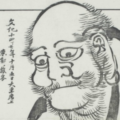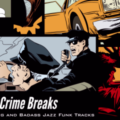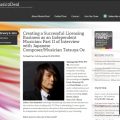Note: I initially wrote this in Japanese in Dec 2019 and thoughtfully translated it into English to share its insights with a broader audience.
Contents
Having the skin in the game
I’m introducing a book after a long time. The translation of Nassim Nicholas Taleb’s “Skin in the Game,” known for his works like “The Black Swan” and “Fooled by Randomness,” has been published in Japanese as “Put Your Money Where Your Mouth Is: The Essence of Life Known Only to Those Who ‘Live with Risk.'” While his book “Anti-fragile” is one of my favorites, I haven’t read this one yet. However, he often writes about the importance of having skin in the game in his other books, which I strongly relate to, and this title represents my philosophy.
One thing I can proudly (and half-jokingly) say is that my “skin in the game” ratio is likely much higher than Taleb’s, who has this book published and heavily promoted by the significant publisher Random House.

I’m writing the following thoughts hoping they might lead to insights or courage for the very few people (including artists and musicians) who choose a lifestyle like mine. However, I don’t believe that having skin in the game is the only method, nor am I recommending that everyone do so. Please keep this in mind.
The Self-Made Journey: Bootstrapping an Independent Music Label
After launching my music label and publishing company, Model Electronic Inc., I’ve been covering all expenses related to this business and my personal life out of my own pocket. This includes rent, office costs, production expenses for music and master recordings, variable costs like
manufacturing and shipping for each release, promotion fees, personnel costs, lawyer and accountant fees, and travel expenses. I’ve never received financial assistance or investment from others.
When I made the life-changing move from Japan to the United States, I bore all the costs and expenses from my own savings account. This included obtaining my green card (permanent residency) and starting a new life. My permanent residency doesn’t require a local sponsor or employer, so I’ve continued to be self-employed and self-funded since moving to the US, just as I was in Japan.
I don’t belong to any management company that regularly deposits a salary or allowance (which is usual in the Japanese music and entertainment industry), nor do I have any employment contracts. My life has fundamentally been more about days of “paying” than “receiving.” Yet, I’m surviving in the cut-throat industry in the US, where shrewd opportunists and tough businesspeople from around the world gather, without falling victim to their schemes (though it could quickly happen if I let my guard down).
Background and Motivation
I didn’t come from a wealthy family, and my parents did not have high educational backgrounds. My parents, who lived in a cramped company housing as part of the lifestyle of a ‘salaryman’-a term used in Japan to describe a white-collar worker who is typically a company employee and must always be ready to get transferred across the country-made significant sacrifices to send me to a private preparatory school and support my university entrance exams in Tokyo.
Since becoming an adult, I’ve felt a strong sense of guilt about receiving financial support or assistance from others (even parents) to fulfill my desires. This has led to a solid aversion to relying on others or quickly incurring financial and otherwise debt.
Career Path: Starting From a Salaryman
After graduating from university, I started working in the advertising industry. While it was indeed a fulfilling profession (which would often be deemed as a “rosy,” dream career), I couldn’t find moments where I felt completely immersed to the point of firmly deciding, “I’m going to dedicate my entire life to this job!” I understand that some people find satisfaction in projects for clients with significant social influence and large budgets, but something about it didn’t quite sit right with me. I’m not sure if it was due to my underlying aversion to “using other people’s money,” as mentioned earlier, or if I had always harbored a latent desire to “eventually become independent and start my own business.”
Additionally, I felt a kind of “complacency” or inconsistency in being able to experience a virtual sense of satisfaction of “doing creative work” without worrying about the source of money or profitability and without fully bearing the responsibility or risk myself. This led to a profound sense of dissatisfaction that I couldn’t ignore.
Entrepreneurial Journey
After debuting as a recording artist in 1997, I worked with several record labels. Throughout this time, I had a desire to manage my own music business, and as I gained more experience as an artist, this desire grew more assertive. Finally, in 2005, I sold my car and used up my savings to establish a company/label. Since then, I’ve managed to handle my music business and private life for about 19 years. Not only in terms of career and work but also financially, I’ve come to appreciate the importance of taking risks and the satisfying sense of ‘commitment’ that comes from it. This feeling of commitment is what brings me a sense of fulfillment and contentment every day.
Philosophy on Risk and Freedom: Gain a Sense of Control
When you willingly take on risks and own and make the most of various resources and rights necessary for your business, you gain a sense of control. You don’t need to unnecessarily suck up to others or be indebted or blamed later. You can confidently say no to things you disagree with or dislike. This ‘freedom as a reward for resolve’ was one of my goals, and it’s a feeling of control that I cherish.
The life of “living entirely on your own dime,” which some might never want to experience, is precisely what I consider a “rosy” life. Paradoxically, this way of thinking resonates with me.
The Illusion of Stability in Traditional Careers
There’s a widespread perception that careers in music or self-employment are unstable and lack future guarantees. However, the real instability lies in the inability to choose your own risks and take countermeasures when problems arise. This translates to not having decision-making power or responsibility in crucial moments. Unless there’s a company in this world that never fires employees during economic downturns or due to mistakes, never goes bankrupt despite incompetent management, and has no layoffs or mandatory retirement, such an ideal scenario is 100% nonexistent. I understand my perspective is in the minority, but I’d like those who seek stability in life and avoid risks, or those who criticize risk-takers, to carefully examine what they believe is stable and guaranteed in their own careers and lives, what they might be losing in exchange, and what remains in the end. Self-employment, in particular, offers the potential for growth and success, and it’s important to consider this when evaluating stability.
The Double-Edged Sword of Other People’s Money (OPM)
Today’s topic is very personal. Using other people’s money (OPM) isn’t inherently wrong at all. The world is filled with projects that couldn’t even start without sponsors, investors, or bank funding, and countless businesses have driven society forward by wisely using OPM. However, a lack of awareness that you are using OPM can lead to significant misunderstandings and complacency about finances. Using OPM could significantly impact the feasibility, sustainability, and credibility of your projects. It’s easy to imagine that projects initiated by those who’ve invested their own money differ significantly in these aspects from businesses conceived by those who take financial support for granted.
The Pitfalls of OPM Culture in Tech and Startups
Regardless of country, I sense a culture in the technology industry and startup circles that prioritize the techniques of financing OPM over those of developing actual values and durability of the business. By ‘actual values,’ I mean the tangible benefits a business brings to its customers and the society, and by ‘durability,’ I refer to the long-term sustainability and resilience of a business model. This OPM-obsessive culture works as long as there are young but smooth talkers named ‘entrepreneurs’ who are full of themselves and investors who quickly fund them—either those who’ve acquired easy money through IPO games or funders with distorted financial senses. It’s like newly licensed drivers speeding at 200 km/h on highways in supercars, squealing with excitement. They might sometimes make it through without crashing, but that’s just a result, not a consistently reproducible success. People who lack awareness about using or allowing the use of OPM tend to overestimate this aspect, believing they have the talent of alchemists.
Lessons from Recent Scandals and the Addiction to OPM
Looking at recent scandals like those at the MIT Media Lab and WeWork’s blunders, which unfortunately involved Japanese individuals, I imagine that, for those who are totally immersed in the culture, using other people’s money is addictive like a drug and hard to quit. These scandals should serve as a wake-up call, a reminder of the dangers of the OPM culture. I feel fortunate to have chosen a life unconnected to both of these scenarios.






